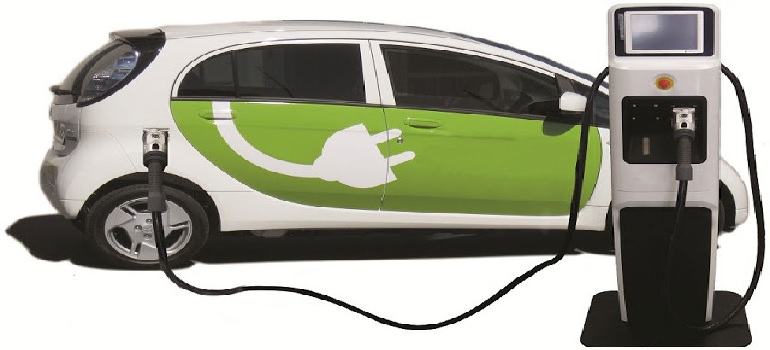
Unilever is the first FMCG organisation to join The Climate Group’s EV100 global initiative. This aims to bring together forward-looking companies committed to accelerating the transition to electric vehicles and making electric transport the ‘new normal’ by 2030.
We’re sending a strong signal to the market
The EV100 initiative is the only one of its kind to encourage global business commitments on electric transport, with members swapping their large diesel and petrol fleets to electric, hybrid or fuel cell vehicles, and installing electric battery charging infrastructure.
Unilever is one of 10 founding members along with Baidu, Deutsche Post DHL Group, Heathrow Airport, HP Inc, IKEA Group, LeasePlan, METRO AG, PG&E and Vattenfall.
Together, EV100 members will send a strong market signal that there is mass demand for electric vehicles (EVs) by 2030 or before, well ahead of current forecasts for global uptake. By setting out our future EV purchasing requirements on an ambitious timescale, we can help drive mass roll-out, reduce costs and make electric cars more rapidly affordable for everyone around the world.
The transport sector is the fastest-growing global contributor to climate change, with businesses owning a significant portion of all registered vehicles on the roads. EV100 will draw on corporate leadership to accelerate the shift to electric transport.
Our commitment and progress
Reducing emissions is good for business
As part of EV100, we have committed to a phased integration of electric vehicles into the fleets that we directly control – the ones we own or lease. We are aiming for these fleets to be 25% EV/hybrid by 2020, 50% by 2025 and 100% by 2030.
We have a fleet of approximately 13,300 company cars. For the immediate future, our aim is to ensure that hybrid vehicles – those that combine traditional fuel and electric power – as well as fully electric cars, are made available to Unilever company car drivers. This will happen globally as contracts with suppliers come up for renewal.
In addition, we will choose to partner with car hire and taxi companies who offer or use electric vehicles. We are also looking to negotiate discounts with car leasing companies for employees who want to lease electric cars for personal use. And we are currently drawing up plans to install charging points at Unilever buildings.
We have already started work on making our vehicles more carbon neutral. Last year, we introduced the first Global Fleet Policy for tool cars (those used for work) and benefit cars (company vehicles that form part of a reward package). The policy mandated new CO2 emission caps of 120 for tool cars and 140 for benefit cars.
Transitioning to electric transport makes environmental and business sense. The pledge supports our Sustainable Living Plan targets to reduce the environmental impact of our business by half. It will also help us save money – in terms of fuel costs versus cheaper electricity spend, as well as tax benefits – and future-proof our operations.
As our Global Fleet Services Manager, Lee Warner, explains: “By reducing our vehicle carbon emissions, we’re contributing to a healthier, cleaner and more sustainable environment. Technology in this field is advancing rapidly with ever-increasing mileage ranges and into the future, fully electric self-driving vehicles.”
EV100 joins a growing list of climate action initiatives and programmes we support.
We have a bold ambition to become carbon positive in our operations by 2030. This means that 100% of our energy will come from renewable sources. We support the generation of more renewable energy than we consume and make the surplus available to the communities in which we operate.
We are making good progress in reducing the environmental impacts of our offices. For example, agile working – using technologies such as cloud computing, Video Presence and Skype for Business – reduces travel and therefore our CO2 footprint.
Agile working also means employees have greater control over when, where and how they work. This helps increase employees’ wellbeing, and our research shows it helps us attract and retain the best talent to drive higher productivity.

